
**Note: Laws changed since I did this process and possibilities for psychologists that want to practice in the clinical field are limited nowadays with a non-Spanish diploma. I recommend looking for advice from legal specialists here in Spain that know about the latest inmigration and certification laws and how that applies to your case, like this office, and that can communicate in English with you. The advice will be different if you want to work with patients (other specializations have different limitations), so be sure to specify that. I'm just a psychologist and a translator and can't provide you with any advice on this. Good luck!
Steps to becoming a licensed psychologist—what happens in Spain and Colombia
I was recently part of an English to European Spanish localization project for a web app aimed at psychologists. As I was reviewing the content, I noticed that the app had some fields that couldn't “just” be translated because of differences between the source and target cultures. I took the time to explain to the client some particularities of the process of becoming a psychologist in Spain and how it differs from other places.
From this, it occurred to me that this information might be worth sharing, especially for anyone thinking about expanding their products into different markets.
The importance of knowing your target
Imagine you have a website in the US that offers a matching service: you match psychologists and mental health professionals with clients. In the US, you know what credentials to ask for. Now you start offering a similar service in some Spanish-speaking countries. Let's take Spain and Colombia as examples.
You've been working with your team for months now, everything is ready, you already have psychologists on your website, and you're attracting clients to match them with. But you start getting complaints because some psychologists are not acting in an ethical way or clients are dissatisfied. After an investigation, you discover some of the psychologists you recruited for your website are not licensed professionals and are not regulated by a recognized ethical board. You wonder how you could have overlooked this.
With the COVID-19 pandemic, there's been a rise in platforms and websites that find and recommend therapists for online sessions, but if you don't know the basic requirements for a psychologist to see patients, how can you spot when you're letting unqualified and unlicensed practitioners on your website? Recommending shady therapists will damage your image and reputation.
Equally, there could be fields and options on your English-language platform that don't apply to your new markets. For example, the profession of psychometrician (test administrator) doesn't exist in Spanish-speaking countries (I wrote about this in an earlier post). Having these out-of-context options on your app could confuse or deter your end users.
In this post, I explain the process of becoming a licensed psychologist in two Spanish-speaking countries: Spain and Colombia. My step-by-step guide will help you decide whether changes should be included in your content localization project.
I'll also mention specific differences with the process of becoming a licensed psychologist in the United States.
Overview: The process of becoming a licensed psychologist
This is a summary of the process (I go into more detail in the relevant sections). Note: I only cover the basic requirements to practice as a psychologist (there are other administrative and tax requirements for healthcare or self-employed professionals that I won't be mentioning here).
| Comparison between the processes in Spain and Colombia | |
| Spain | Colombia |
| 1. Get a bachelor's degree in psychology ("grado de Psicología") | 1. Get a bachelor's degree in psychology ("pregrado de Psicología") |
| 2. Get a license number from the regional licensing board ("número de colegiación") | 2. Get a license card from the national licensing board ("tarjeta profesional de psicólogo") |
| 3. Become a health professional. | 3. You're a licensed psychologist and healthcare professional! 🏆 |
| 3.1. Become a general health psychologist ("psicólogo general sanitario") | |
| 3.2. Or a psychologist specialized in clinical psychology ("psicólogo especialista en psicología clínica") | |
| 4. You're a licensed psychologist and healthcare professional! 🏆 | |
Steps to becoming a licensed psychologist in Spain and Colombia
Generally, in Spanish-speaking countries, your undergraduate degree is the decisive factor. Whether you're in Spain or Colombia, to become a licensed psychologist, you need to start with a bachelor's degree in psychology. You won't be able to practice psychology if you have a bachelor's degree in anthropology (for example), even if you have a master's and a Ph.D. in psychology. In fact, you probably wouldn't even be able to sign up for these graduate studies without a bachelor's in psychology.
Spain
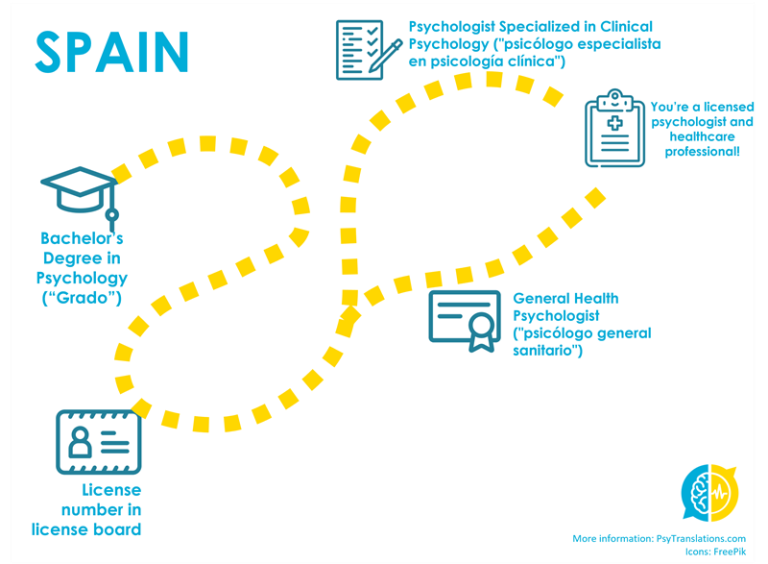
Path to becoming a licensed psychologist and healthcare professional in Spain
- Step 1. Get a bachelor's
Nowadays, and as part of the Bologna Process, the undergraduate degree roughly equivalent to a bachelor's degree is the “grado” of 4 years. So the degree would be a “grado de Psicología”, which is offered in public and private universities. You can also choose optional subject groups (“itinerarios”) that let you graduate with a special mention (similar to a minor). For example, the Universidad de Málaga offers minors in psychosocial intervention, psychoeducative intervention, and clinical psychology. For now, this doesn't have a huge impact, but the minor you choose might be decisive in accessing specific master's programs in the future.
You're now a psychologist! This is all you need to be considered a psychologist and this is enough to work in research, industrial psychology, and other non-clinical fields.
Step 2. Get a practice license
Each of the autonomous communities in Spain has one or two licensing boards (“colegio de psicólogos”) that authorize psychologists to practice after validating their credentials (the bachelor's degree diploma). If this process is successful, you become a licensed psychologist (“psicólogo colegiado”) with a license number (“número de colegiación”).
You're now a licensed psychologist! Sometimes this accreditation also allows you to practice as an educational and social psychologist. You need to pay to renew your license twice a year.
For example, I used to be licensed psychologist with the Colegio Oficial de Psicólogos de Andalucia Oriental (Official Board of Psychology of Eastern Andalusia).
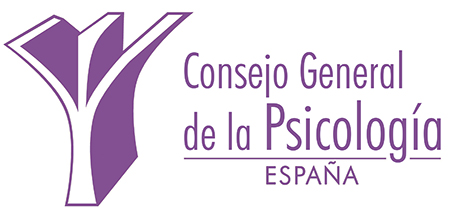
National council that represents and coordinates all the regional licensing boards
Unlike what happens with some other health professions, like medical doctors or speech therapists, psychologists at this level are not considered health professionals and need additional studies to be able to see patients and be fully authorized to practice (so it's similar to those US states that require a different health provider authorization).
Step 3: Become a healthcare professional
There are two ways to become a licensed psychologist and healthcare professional (“psicólogo sanitario colegiado”). Note that both titles are not equivalent because they have some differences in scope (that are not necessarily followed in day-to-day practice).
- 1st option—General health psychologist:
This title is a special degree that gives you access to a regulated profession, so it's not just academic achievement. You get this title after successful completion of a 1.5-year master's in a Spanish university. Competition for places is fierce in public universities, and only students with the best marks are accepted. It's a similar story in private universities, plus the prices are skyrocketing due to high demand. In the future, it's likely that only students with a minor in clinical psychology will be able to access this degree.
In the past (around 2014), there was also the option to obtain this title through professional accreditation (“habilitación profesional”) but it was only available for a short time.
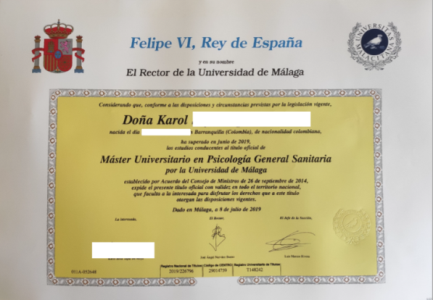
My diploma in general health psychology
After you finish, you get the title of general health psychologist (“psicólogo general sanitario”, PGS), which authorizes you to see patients in the private sector. In theory, it has a more preventive focus, and it has limitations for diagnosis and intervention in psychopathology. In practice, the most important limitation is that you can't practice in the public health system. You're now a licensed psychologist and healthcare professional!
- 2nd option—Specialist in clinical psychology:
For this, you need to access a position that combines a 4-year internship and residency in the public health system (“psicólogo interno residente”, PIR). Getting a place on this program is no mean feat. Candidates spend approximately 2 years of full-time study preparing for the highly competitive exam, but are still not guaranteed success as only a small number of places are available. For example, in 2020, there were 4,439 examinees for 182 positions (in medicine, there were 16,176 for 7,512 positions).
If your effort pays off and you become a PIR, you'll study and practice in the public system for 4 years, at the end of which you'll be a psychologist specialized in clinical psychology (“psicólogo especialista en psicología clínica”, PEPC). With this, you can practice in the public and private system and there are no limitations. You're now a licensed psychologist and healthcare professional!
Colombia
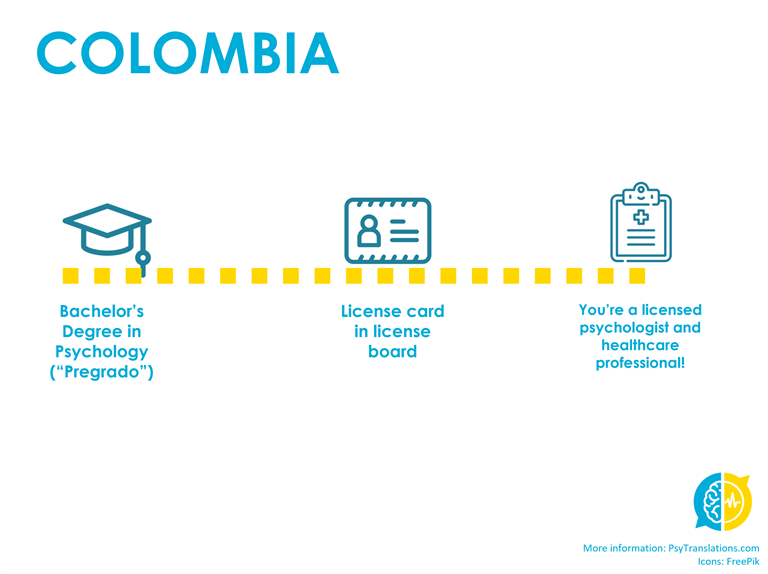
Path to becoming a licensed psychologist and healthcare professional in Colombia
Step 1. Get a bachelor's
This is similar to the process in Spain, but more straightforward. In Colombia, the rough equivalent to a bachelor's degree is a “pregrado”, and it involves 5 years of study. On completion of your “pregrado en Psicología”, the title you get is psychologist (“psicólogo” or “psicóloga”).
You're now a psychologist! With this alone, you can't work as a psychologist in any field. You need to complete the second step.
Step 2. Get a practice license
In Colombia, there's only one big licensing board: the Colegio Colombiano de Psicólogos. It represents psychologists countrywide and issues psychologist license cards (“tarjeta profesional de psicólogo”) after validating your credentials (bachelor's degree diploma). This is a one-time payment for life and will allow you to work in any field of psychology you want. You're now a licensed psychologist and healthcare professional!
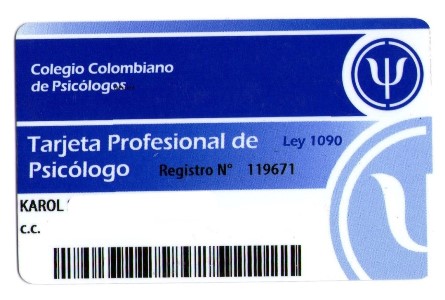
Example: my license card in Colombia
Additionally, you may decide to be an active participant of the licensing board (and become a “colegiado”), but this doesn't get you any additional official benefits, so isn't absolutely essential. This is a yearly payment.
Conclusions
If you want to market your services and products to cultures that are different from yours, you or someone on your team need to have a basic grasp of the differences, as education and health systems differ dramatically from one country to another.
In psychology, as a profession with a health focus in most cases, differences can be especially huge. If you're looking to localize your service or product in the psychology sector, you need to count on someone who knows the ins and outs of this profession and what applies to your new target market.
If you're planning to translate your psychology-related app/web/project and have questions about whether you need to adapt some of your content, don't hesitate to contact me! We can discuss your queries and I'd be delighted to help you identify the best approach for your specific needs.
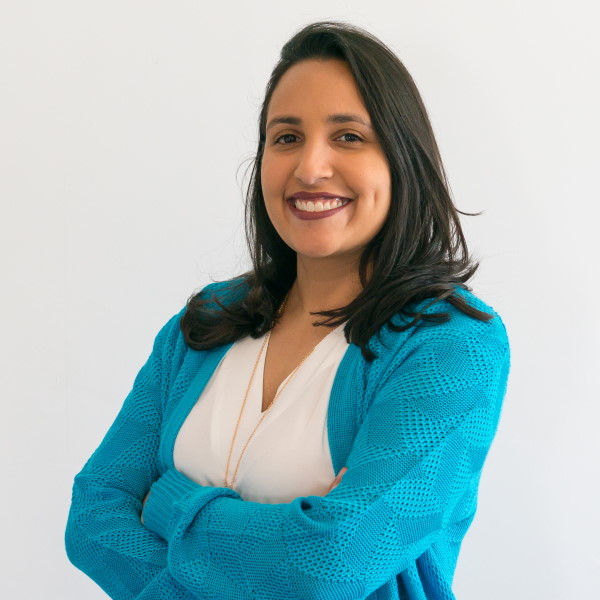
is a psychologist and English to Spanish translator. She specializes in the fields of psychology, healthcare and medicine, and education. In this blog, she writes about everything she knows or has learned that could be useful or of interest to you!